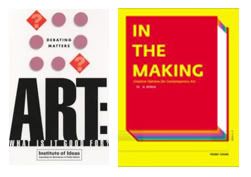
What is the central concept that governs your work?
Current sociopolitical issues and autobiographical.
What inspires you? What do you do to get inspired? What inspires your work?
Everything… stories, books, news, breaking news, landscapes – cloud, mountains, trees, jungle, rivers, ocean, rain, dried earth, wind, weathers, lines, textures, colors, everyday life, sound and music, etc. etc. Just ‘look and listen’. Art is out there waiting to be captured. The only question being whether we are prepared to recognized it.
What engages you as an artist? What issues engages you? Does it drive your direction of work in any particular area?
I like Buddhist and Sufi’s view of life which stresses the ideas of impermanency and the worldly life as a mirage. This ideas was reflected in most of my works, particularly my two ‘Self (In Quest) Portraits’ 1995 and 96, my earlier installation, ‘Mat Jenin Is (Always and Always Will Be) Dreaming To Death’, 1999, my Vermont series, ‘Imitating The Mountain’ and ‘Imitating The Woods, 2004, and my Korean Series, ‘Fatamorgana…’ 2006, just to name a few. Fatamorgana itself is a Malay words for mirage.
In your opinion, do you consider yourself a contemporary artist?
I think so.
What do you think is the role of a contemporary artist in society?
My friend once told me that in France, they planted roses outside their grapes farm for wineries to attract insects so that their grapes will be good and healthy for wine making, and I like the idea even though I don’t know if it is true or not. To me, in a way, an artists should be ‘that roses’ to his society because they are among others, the one who is really ‘looking and listening’. I used to ideally try to think and be like that during my earlier parts of my career until the day I realized that I can’t be a prophet, so I changed instead on my own self. Whatever I did after that is first of all for myself. Out of curiosity on so many things in life, I created arts as a mean of gaining knowledge, to educate myself, to sharpen my senses and to try to morally change myself, and I believe that if you’re honest and true to yourself, your arts will somehow reach the people (who are willing to share it) out there.
Do you think the role of a contemporary artist has changed from the 20th century to the 21st century within the social structure of society? Has this effect/influence your practice of art in relation to this shift/change?
The role of an artist is still the same but some issues and artistic medium has either evolved, changed, or different. As for me, I just wanna do arts. I will use whatever medium that I feel the closest and the best to represent my issues or ideas, and I don’t really care much about all those other things.
Do you think art education plays a big role in shaping our future generation/nation building? If yes, how?
I always believe this as a roots of it all. During my time, art education in school was just another last and unimportant subject. This hierarchy itself had shaped generations of Malaysian to look at arts as unimportant comparing to the other subjects like science, mathematics and so on. To me, arts and cultures are a soul of a nation while all the others are parts of its body. How can a body live without soul? So, in this case we need to change this perception. How? First of all, art education in school has to be upgraded and given a priority at an equal platform as other important subjects. Future generations will then accept it as equally important in life as science and mathematics.
Are there any role models that you’ve had (within/ with out art practice)?
Prophet Muhammad, Mahatma Gandhi, Leo Tolstoy and Yusof Islam.
Who’d you like to meet (passed on/alive) if you had the chance to?
Sheikh Kadir Al Jailani and Syeikh Siti Jenar.
What is the most recent book you’ve read?
‘Blink’ by Malcolm Gladwell and Shamsiah Fakeh’s memoir.
What would you be doing if you were not an artist?
Music or film (or rubber tapping with my dad?).





No comments:
Post a Comment